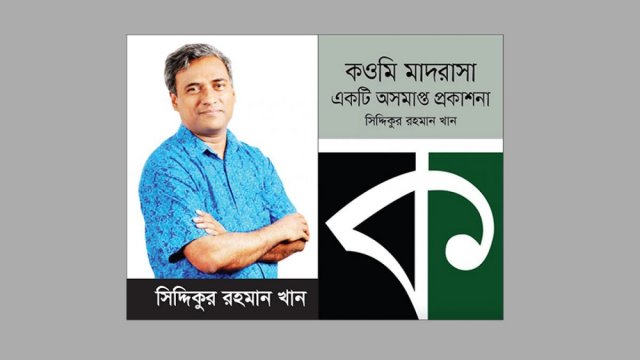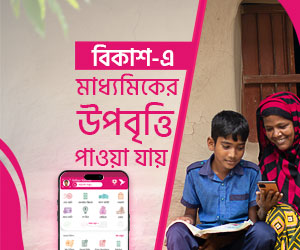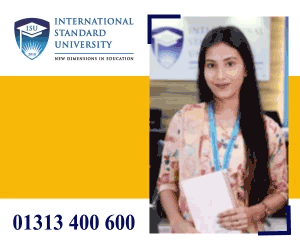In October 11, 2018, the World Bank launched the Human Capital Index (HCI) which published a range of noteworthy information regarding Bangladesh’s future. HCI has been defined as “a calculation of the amount of capital (knowledge, skills and health) that a child born today can expect to attain by age 18 given the risks of poor health and education that prevail in the country.” According to that report, Bangladesh outperformed its neighbours in South Asia and other developing countries in many aspects. For instance, 87 percent of all 15-year-olds will survive until age 60 (compared to 83 percent in India, 84 percent in Pakistan and 85 percent in Nepal). A girl child here has more human capital than a boy, which goes to highlight the country’s notable performance in achieving gender equity.
However, it’s not all good news. In fact, all these achievements are being overshadowed by the fact that the quality of education in Bangladesh prevents a child from achieving their full potential. The report said that with the current quality of education and health situation, a child born today will be only 48 percent productive when s/he grows up even if s/he has full access to all these educational and healthcare services. The reason behind this bleak scenario is reflected in another report titled “World Development Report 2018: Learning to Realize Education’s Promise”. According to this report, 35 percent of our students cannot read Bangla comprehensively even after passing grade three. Only 25 percent of our students achieve terminal competencies (a list of skills a student is expected to attain after completing primary education) after completing their primary education and students lose 4.5 years in the first 11 years of their schooling due to poor quality of education. Ultimately, when these students enter the job market after completing their higher education, 38.6 percent of them remain unemployed.
These statistics indicate that we are going to face a major crisis in the near future. In its recent election manifesto, the Awami League categorically promised to improve the quality of education by increasing budgetary allocation for education with enhanced tracking and monitoring and increasing research incentives for academics. The previous election manifestoes of the party echoed similar promises. However, the allocation for education in this year’s budget has stirred apprehension and controversy.
This year, the Bangladesh government has allocated Tk 61,118 crore for the education sector, raising the allocation by 17 percent from the last budget. However, the allocation for the education sector is still only 11.53 percent of the total budget, which is almost the same as that of last year. In terms of GDP, the allocation is also poor compared to other South Asian countries. Only 2.1 percent of the total GDP has been allocated for the education sector this year whereas India, Nepal and Sri Lanka spent 3.8, 3.7 and 3.6 percent respectively of their total GDP for the education sector. As an E-9 country, Bangladesh is a signatory to the UNESCO’s Education 2030 Framework for Action which requires that national budget allocations for education should be at least 20 percent of the total annual budget and six percent of the country’s GDP.
Nevertheless, the government is claiming that the total allocation for the “education and technology” sector is Tk 79,486 crore which gives this sector the biggest share of this year’s budget. Interestingly, by clumping “education and technology” in the same sector, the government has included the Rooppur Nuclear Power Plant project into the education sector, a project under ministry of science and technology, for which Tk 14,980 crore has been allocated in the fiscal year 2019-2020. Meanwhile, some vital sectors of education such as vocational education, research and development, and madrasa education have received much less than this newly introduced “technology” part of the education budget. The government has allocated Tk 9,000 crore for all development projects under the secondary and higher education division, Tk 7,454 crore for vocational and madrasa education combined and only Tk 50 crore for research and development projects.
Professor Dr Mohammed Abu Yusuf, director of the Centre for Budget and Policy at the University of Dhaka says, “The government has increased monetary allocations in various sectors of our education system(s). However, we have not seen any guideline in the budget speech or budget documents about how these sectoral allocations will be invested. There is no mention of education policy 2010 in the entire discussion on budget. From records of previous years, we can predict that a large portion of this budget will be spent on non-academic expenditure such as salaries, construction and maintenance works which contribute little to improve the quality of our education sector. No plans to implement the education policy and inclusion of projects like the Rooppur Nuclear Power Plant into the education budget has created ambiguity about the government’s plans for the education sector.”
The current government promulgated the education policy, 2010 during its first term in power. It was the first fully-fledged education policy of Bangladesh and is considered a modern and well-crafted policy which effectively blended the liberalism of Kudrat-e-Khuda’s education commission report with the aspirations of Bangladesh’s contemporary social and economic needs. This policy introduced some radical modifications that, if implemented, have the potential to bring some significant qualitative changes to the country’s education system. However, most of those recommendations have not been implemented in the last 10 years.
Professor Dr Siddiqur Rahman, former director of Institute of Education and Research at the University of Dhaka and a member of the Kabir Chowdhury Education Commission that formulated the education policy, says, “There are several recommendations in the education policy which could be implemented with minimum budget but if implemented these could reform the system significantly. For instance, extending primary education up to grade eight, promulgation of education law, formation of an independent education service commission and formation of a permanent education commission. Unfortunately, discussion on implementation of this education policy never appeared in any of the national budgets.”
However, the government has tried to implement some of these initiatives. For instance, in 2016, the government announced that it would extend primary education up to grade eight after piloting the project for three years in different schools of Bangladesh. A common core curriculum was developed which would be followed by all schools regardless of their medium of instruction. On May 18 that year, the government even announced that there would be no more PEC exams in grade five and academic activities up to grade eight will be supervised by the Ministry of Primary and Mass Education (MOPME). This decision was highly appreciated because it would reduce the burden of exams for children who now have to sit for four public exams (at grades five, eight, ten, twelve) during their school life. Also, it could reduce the dropout rate and increase the achievement of terminal competencies. A common core curriculum compulsory for all schools mean that all primary school students would go through similar academic experiences, ensuring standardised cognitive development of students across the country. Despite all these announcements, the initiative was suddenly postponed to 2021. According to MOPME officials, the lack of budget and infrastructure and shortage of teachers are the main reasons behind this postponement.
Similarly, the government also formulated the draft education law in 2016. The process of formulating this law actually started in 2011, immediately after circulation of the education policy 2010. The first draft of the law was formulated in 2012, another draft was published in 2013. Both the drafts were withdrawn for further modification. Then, after two years of silence, the third draft of the law was published on October 19, 2015, but within a week the draft was also withdrawn, due to criticism over the reduced penalty against criminals involved in leaking question papers of public exams. The final draft was published in April 2016 and was endorsed by the cabinet. For mysterious reasons, the law has not been passed yet.
Rasheda K Chowdhury, executive director of the Campaign for Popular Education (CAMPE) says, “We don’t know why the education law was not promulgated. It has been stated in the policy that the education law would be instrumental to implement the policy. Without this law, implementation of core curriculum in all the institutions is not possible; we cannot hold someone responsible if his/her institution does not follow the education policy. In other words, implementation of the education policy is not possible without education law.”
According to experts, formation of an education service commission was also an important initiative which could ensure recruitment of skilled and committed teachers in our educational institutions. Professor Dr Rahman says, “Like the public service commission, we should formulate an education service commission which will oversee recruitment process for the teachers of different types and levels of educational institutions. At present, we have Non-Government Teachers Registration and Certification Authority (NTRC) who have been arranging exams to identify qualified and competent teachers. However, they are only assessing subject knowledge of the teachers but how can they assess their commitment and ethics which are no less important than their subject knowledge? This is why there is no alternative to formulating this commission for recruiting qualified and competent teachers.”
Can this education policy be implemented within the current budgetary framework? Will it be too expensive for Bangladesh’s economy, as believed by several policy makers and civil servants? Professor Dr Yusuf says, “Most of the key recommendations of the education policy, 2010 can be implemented by utilising existing resources. For instance, we don’t need billions of takas to formulate education law and the education services commission. Even extension of primary education is possible with efficient utilisation of existing primary and high schools and by arranging training for primary school teachers. We only need sincere political commitment to implement the education policy and we need our leadership to sincerely want to improve the quality of our education system.”
The current government had taken a momentous initiative by formulating Bangladesh ‘s first education policy which could be the foundation stone for the qualitative reformation of our education system. Unfortunately, most of its excellent provisions are rarely realised in the budget and in development plans; as a result, allocations for our education sector can do little to improve its quality. For the sake of the nation’s future, our policy makers must take steps to implement the policy, the embodiment of our nation’s conscience, with proper research, preparation and by allocating adequate resources with proper tracking and monitoring.
Source: Daily Star




